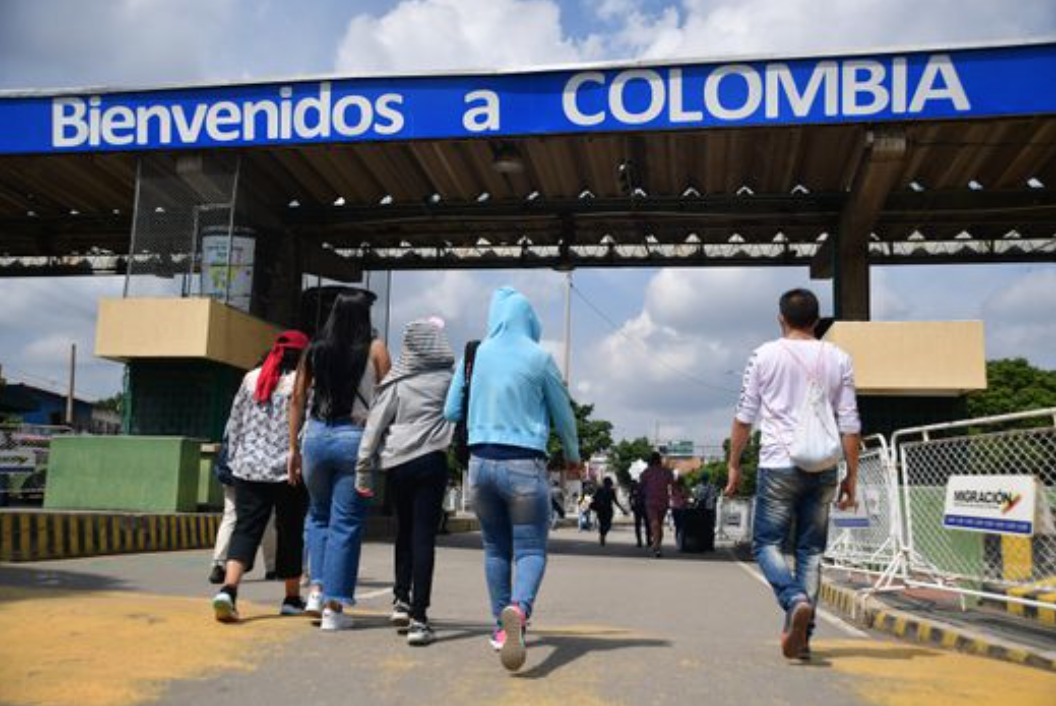On March 1, 2021, Colombia’s President, Ivan Duque, signed Decree 216 of 2021, or El Estatuto Temporal de Protección de Migrantes Venezolanos (ETPMV), which grants Venezuelan migrants living in Colombia on or before January 31, 2021 the right to apply for Temporary Protective Status for up to ten years. This protection regularizes these individuals and gives them access to the formal economy, health care and public education. By February 2022, 96% of the now estimated 2.5 million Venezuelans residing in Colombia had applied for this protection.
Beyond the significance of this action —Colombia can (and should) be lauded for doing more for this displaced population that any other nation— it reflects an erroneous narrative based on the idea in both academic and activist circles that if we simply open borders and regularize people’s status, then immigration justice will be achieved.
The problem is that borders are not simply entities akin to walls or doors that can be opened or closed at whim and treating immigrants justly requires more than simply opening borders and relaxing admissions requirements, which is clearly demonstrated by the fact that even with the Temporary Protective Decree (ETPMV) in place, countless Venezuelan immigrants in Colombia continue to endure various kinds of immigration injustices.
The Colombian case shows us that we need to reimagine the nature of borders and what border policy should focus on and entail. Since the enactment and implementation of ETPMV, Venezuelan migrants have continued to face oppression and other injustices simply due to their nationality and immigration status. The Department of Legal Medicine reports that between January and May of 2022, 367 Venezuelan migrants were murdered in Colombia. Amnesty International reports that gender-based violence against Venezuelan refugee women in Colombia increased by 71% between 2018 and 2021 and Colombia’s National Administrative Department of Statistics, DANE, found 24.1% of Venezuelan women have experienced discrimination or unjust treatment due to their gender, migration status and nationality.
Barómetro de Xenofobia, reported that instances of anti-Venezuelan xenophobia have increased in 2022. During the first five months of this year, the rate of reported incidents against Venezuelan migrants rose from 9%to 12%. Venezuelan migrants also continue to have difficulty finding work (even though they now have legal permission to do so in the formal sector), including an estimated 43% of the migrant population with a university degree because now many employers are requiring additional documentation beyond the Temporary Status Protection documents.
Worse, even when they do find work, Venezuelan migrants continue to receive lower salaries, work in unfavorable conditions, and continue to be targeted for trafficking, sex work and other abuses by organized crime and other groups. The International Crisis Group, for example, recently reported that, “in the construction industry … a Colombian employee can earn up to 70,000 Colombian pesos ($17.5) a day, while a Venezuelan is paid about 30,000 pesos ($7.5), even if he is similarly skilled.” And Colombia Reports notes that “an estimated 16% of Colombia’s homeless population is Venezuelan and many of the migrants describe their living conditions as ‘miserable and inhumane.’”
This data does not indicate that the Temporary Protective Program is failing –it is not– these numbers simply demonstrate that it is not enough. But beyond this, the fact that immigration injustices continue to pervade the lives and experiences of so many Venezuelans in Colombia demonstrates at least two points: first, we need to stop seeing immigration justice as synonymous with open borders and second, we need to start reimagining the nature and importance of borders to start making better migration policies.
We need to stop seeing borders as walls, limits, or doors that separate populations and territories that can be opened or closed at the whims of a government. Empirical realities in Colombia and around the world clearly show that this is not true and that migrants, asylum seekers, and displaced persons will cross borders if they need to do so.
It is not simply that open or closed borders do not really affect migrant flows, but rather that this reality shows that we have the wrong focus when it comes to borders and border policy. We must stop focusing on what borders and border policies are and instead focus on what borders and border policies do, which is promote or impede justice. In other words, the question is not whether we should keep borders open or closed, but instead how to use borders and border policy to promote justice.
Increased militarization of the borders is not a problem simply because it tries to maintain closed borders. It is a problem (among other reasons) because it promotes violence and increases the dangers migrants, asylum seekers, and displaced persons face in crossing by forcing them to use unauthorized or precarious routes where they are vulnerable to sickness and death from the elements or to criminals, gangs and other actors trying to abuse them in a whole host of ways (from robbery, rape to human trafficking and recruitment/servitude).
Increased state presence in the form of police to keep cities and migrants safe along with increased social services like medical clinics, schools, and communication services is sought by many. Many argue that the absence of the state in border regions (aside from a military presence) abandons migrants and causes more injustice.
The issue, then, is not whether borders should be open or closed, but rather what they do and how we can change policies in border regions to promote justice. And taking this path, will help not only Venezuelans in Colombia, but will also better guide nations throughout the Americas on how to construct border policies that actually help migrants receive the better life they seek.
Autor
Associate Professor and Researcher at the Center for Migration Studies at Universidad de los Andes, Colombia. PhD. at Michigan State University. Author of "Just Immigration in the Americas: A Feminist Account" (Rowman & Littlefield International, 2020).












